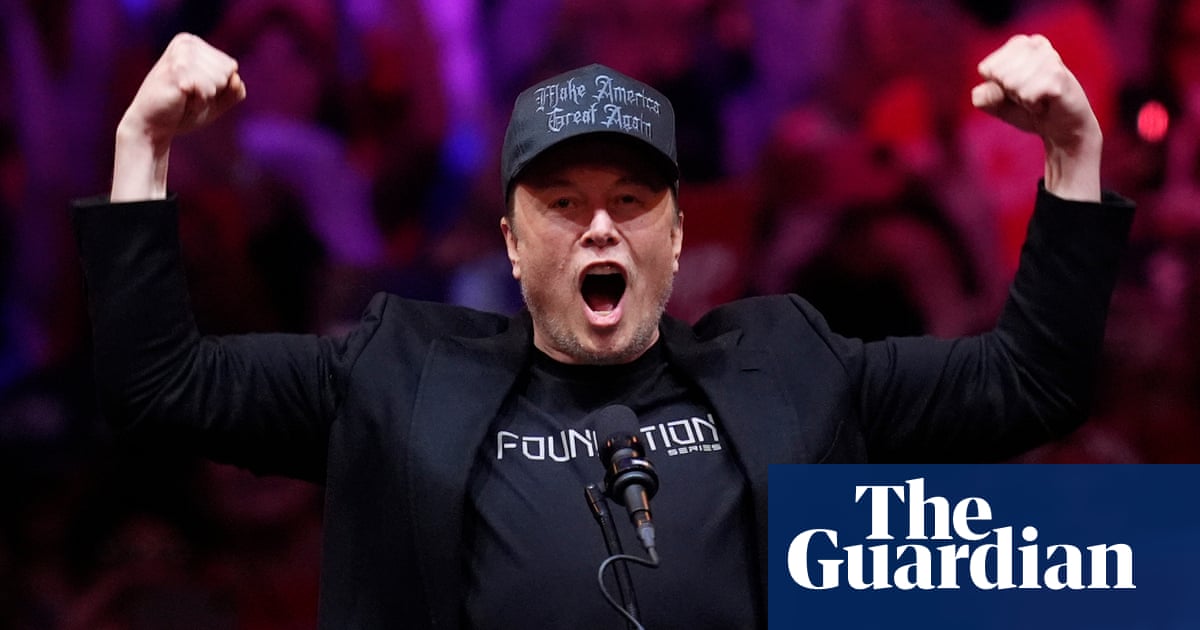The German government has accused Elon Musk of trying to meddle in the country’s election campaign with repeated endorsements of the far-right party AfD.
“It is indeed the case that Elon Musk is trying to influence the federal election,” said the government spokesperson Christiane Hoffmann after Musk’s X posts and an opinion piece published at the weekend backing the anti-Muslim, anti-migration Alternative für Deutschland.
She said at a regular media briefing that Musk had the right to free speech, adding: “After all, freedom of opinion also covers the greatest nonsense.”
Musk has often weighed in on German politics, even calling the chancellor, Olaf Scholz, a “fool” on his social media platform X last month. However, his more recent open calls for German voters to back the AfD, which federal authorities classify as a suspected extremist party, have sparked outrage and accusations of troubling interference in Europe’s top economy.
The South African-born entrepreneur, who has been named by Donald Trump to co-lead a commission aimed at reducing the size of the US federal government, wrote on X earlier this month: “Only the AfD can save Germany.”
In the post, he shared a video by a German rightwing influencer, Naomi Seibt, who criticised Friedrich Merz, the conservative frontrunner in the German election, and praised Javier Milei, Argentina’s self-styled “anarcho-capitalist” president.
He followed up at the weekend with a guest editorial in the broadsheet Welt am Sonntag arguing that Germany was teetering on the brink of economic and cultural collapse, defending the AfD against accusations of radicalism and praising the party’s approach to the economy, including regulation and tax policy.
The editor of the centre-right newspaper’s opinion section, Eva Marie Kogel, posted on X that she had submitted her resignation in protest at the decision to run the article.
Politicians from across the political spectrum criticised Musk’s attempts to put his thumb on the scales of German democracy, with the health minister, Karl Lauterbach, of Scholz’s Social Democratic party (SPD) calling his intervention “undignified and highly problematic” and Merz saying it was “intrusive and presumptuous”.
Merz told the Funke media group: “I cannot recall in the history of western democracies a comparable case of interference in the election campaign of a friendly country.”
Scholz’s centre-left-led coalition collapsed last month, prompting him to call a confidence vote in order to trigger a general election in February, seven months ahead of schedule. His SPD is widely expected to lose to Merz’s CDU/CSU bloc amid voter anger over the cost of living and meagre economic growth.
Last week, Germany’s president, Frank-Walter Steinmeier, criticised X explicitly and Musk indirectly in a short speech announcing his formal decision to dissolve parliament and call the election on 23 February.
after newsletter promotion
Steinmeier, whose role is largely ceremonial, warned of “outside influence” in the campaign, specifically citing recent “open and blatant” attempts on X to sway the vote. The remarks were widely interpreted as an admonishment of Musk.
Members of the AfD have been working for months to make inroads with the Trump camp. Alice Weidel, the party’s co-leader, was one of the first politicians abroad to welcome Trump’s election victory.
A small group of AfD activists posed for pictures with Trump at his private club Mar-a-Lago on US election day last month, chanting “Fight! Fight! Fight!” in English and German for the cameras.
In Musk’s endorsement in Die Welt, he cited Weidel’s “same-sex partner from Sri Lanka” as evidence that the portrayal of the AfD “as rightwing extremist is clearly false”. “Does that sound like Hitler to you? Please!” he wrote.
The AfD is polling second on about 19%, behind the CDU/CSU on 31%. A strong showing for the party could complicate coalition building after the election, requiring the winner to seek up to two partners to build a ruling majority. All mainstream parties have ruled out collaborating with the AfD at state or federal level.

